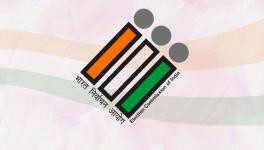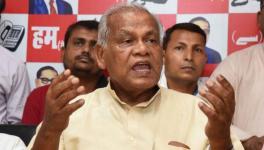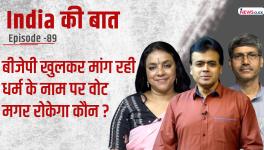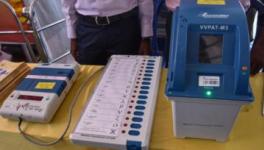The AAP Phenomena
The Delhi elections have thrown up the Aam Aadmi Party (AAP) – a phenomena that has not been to the liking of either Congress or the BJP. For the BJP, it was a blow of major proportions. They believed that Delhi was in the bag and a score of 4-0 in the four northern states of Madhya Pradesh, Chattisgarh, Rajasthan and Delhi could be touted as a Modi wave. That a fledgling party could get so many seats and prevent BJP's majority, denying a 4-0 score, was indeed a very deep blow; not only in Delhi but for this claim of a Modi wave. Given a choice, it was clear that the Indian people do not want either the Congress or the BJP.
For the Congress, secure that they are the only opposition to the BJP in the north, Aam Aadmi's emergence has been a rude shock. Not only has AAP captured the anger of the people with the current political establishment, it has also staked a claim to the secular space that the Congress believed was their monopoly. With the emergence of AAP, it is possible that in states that are still dominated by a Congress-BJP as the only two forces, the electorate will find another alternative.
The government formation in Delhi has also shown the kinds of games that both BJP and Congress are playing. For the BJP, they first stated they were not willing to form a government as they did not have a mandate, and chastised AAP for not taking responsibility. Once AAP decided that they would form a government, BJP immediately accused them of being power hungry. So AAP is power hungry if it forms a government or is unwilling to take responsibility if it does not. BJP must indeed believe that people have short memories not to see through such hypocrisy.
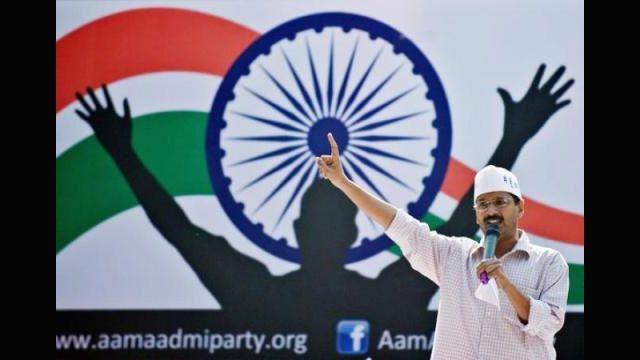
Image via www.youngisthan.in
The Congress played its cards better. Having been decimated, their only chance was to have AAP come a cropper in running the government. They offered first an unconditional support and even accepted whatever terms AAP wanted it to endorse. This left very little room for AAP not to take on the task of running Delhi. Forcing another election right now carries the risk of an Assembly elections at the same time as the Parliament elections. That may not help the AAP. So a short term government that can deliver a few things before raking up the various scams committed by the Sheila Dixit government leads to Congress withdrawing support – this is the best case scenario for AAP. It will give them kudos, and the honeymoon with the electorate will hopefully still continue. And it will de-link the Delhi Assembly re-poll from the Parliamentary elections.
AAP poses a threat to BJP as it seeks to channelise the anti-Congress anger behind a new force. Otherwise, BJP would have been the chief beneficiary of Manmohan Singh Government's unpopularity. And let us be clear – the Congress looks a rudderless ship, with Manmohan Singh appearing completely ineffectual and its new leader, Rahul Gandhi completely clueless. For the Congress, AAP is a more long-term threat. Increasingly, the argument that Congress is the only force capable of stopping BJP looks weak. Congress seems to be over. Its dynastic rule makes it difficult to throw up a new leader from outside the family. And if the dynasty fails to deliver a election-winning leader, Congress has very little left in its kitty. Then the knives come out, with all the leaders gunning for each other. Less the mass base of the leaders, more the skulduggery within. Lacking any culture of a democratic transition, it is incapable of having an alternative leadership, barring whom the dynasty anoints. As we can see, with the dynastic charisma fading, Congress has very little to offer to the people.
The AAP therefore has the potential of filling this emerging vacuum. In a sense, it is very much a formation like the Congress of yore. It has no clear ideology – it says that it will develop its positions with the help of the people. While no “book” as its ideologues say may seem attractive, but it allows from “market will decide” to the “state having an obligation” to the people for delivering the basic necessities to the people both to coexist within AAP. This is very much like the Congress – its amorphous ideology allowed opposing ideological forces to coexist within the fold. Similarly for secularism. The nearest that AAP comes to in its secular ideology is again the Congress. Kejriwal – collecting godmen earlier and now going to retrogressive clerics delivering illegal fatwas – again is familiar.
Without a clear ideological position, there is only so far AAP can go. But given the slow demise of the Congress, AAP has still considerable space to grow. For AAP, as long as it works on a negative agenda – we are not like other parties, we fight corruption – what they stand for is difficult to see. However, at some time or the other, they will have to stand up and either fight the neoliberal order or succumb to it. That would be their litmus test. For now, let them enjoy the honeymoon.
Disclaimer: The views expressed here are those of the author, and do not necessarily represent the views of Newsclick.
Get the latest reports & analysis with people's perspective on Protests, movements & deep analytical videos, discussions of the current affairs in your Telegram app. Subscribe to NewsClick's Telegram channel & get Real-Time updates on stories, as they get published on our website.











